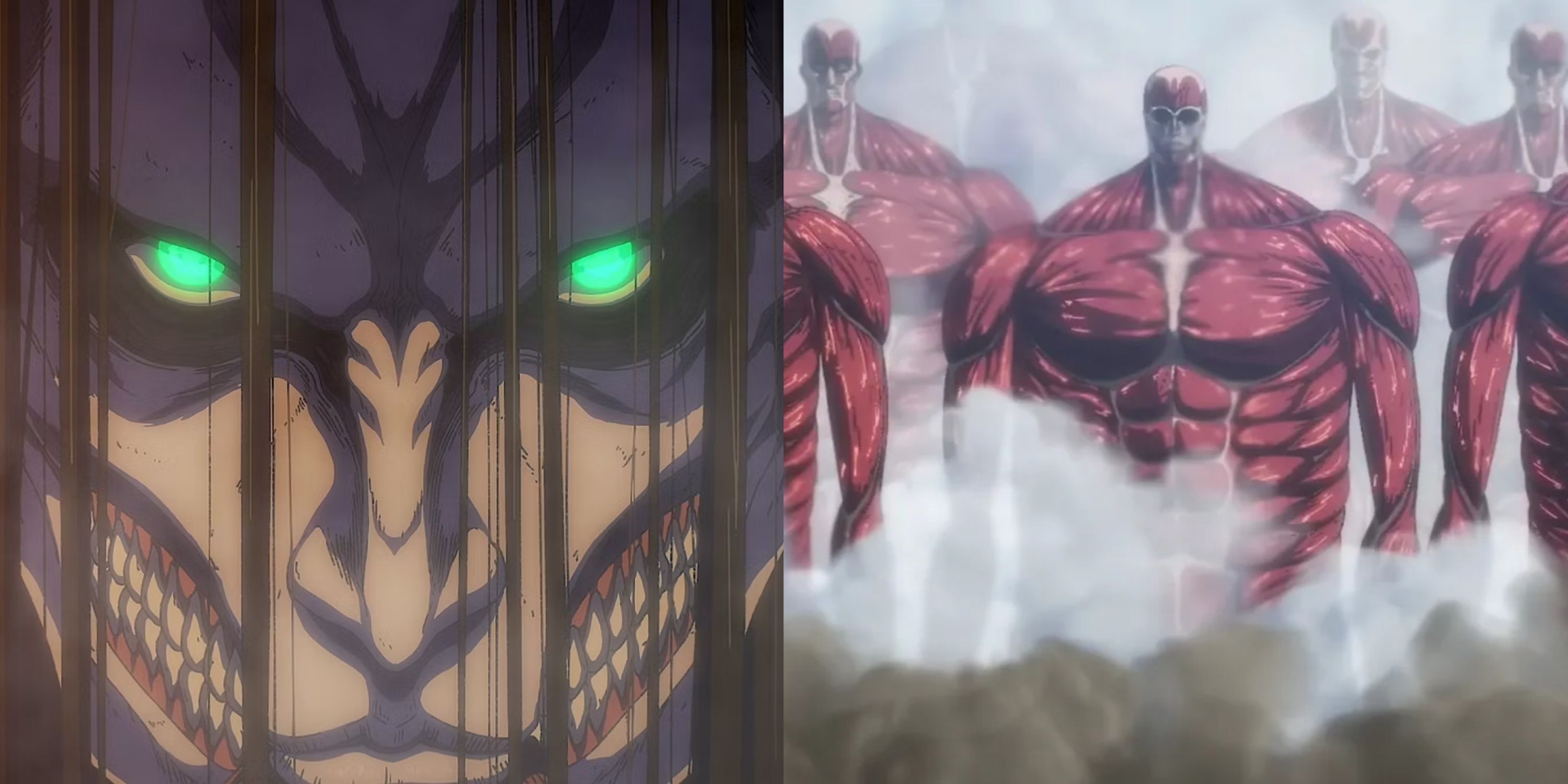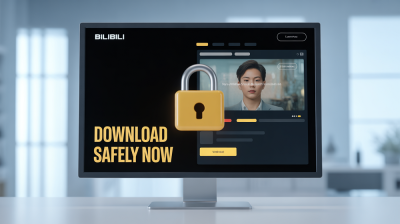Welcome to the world of Attack on Titan, a thrilling anime and manga series that has captured the hearts of fans worldwide. Set in a post-apocalyptic world where humanity is on the brink of extinction, the story revolves around gigantic humanoid creatures known as Titans. These Titans have a terrifying penchant for devouring humans, leading to the establishment of massive walls to protect the last remnants of civilization. But beneath the surface of this gripping narrative lies a deeper exploration of humanity, freedom, and the choices we make. Today, we're diving into the intricate role of Eren Yeager and his pivotal part in the Rumbling—a cataclysmic event that shakes the foundation of the entire series.
Overview of Eren Yeager's Character Development
Eren Yeager begins his journey as a young, impulsive boy fueled by a desire for freedom and revenge against the Titans who killed his mother. As the series progresses, his character evolves significantly, shaped by the harsh realities of the world around him and the secrets he uncovers about his heritage. Here’s a closer look at Eren’s character development throughout Attack on Titan.
1. The Reluctant Hero
At the start of the series, Eren is portrayed as the archetypal hero. He joins the military with dreams of eradicating Titans and seeing the world beyond the walls. His early experiences—being a part of the Survey Corps and facing the Titans head-on—forge his determination and strengthen his resolve. However, he grapples with feelings of inadequacy and anger, particularly when faced with the harsh realities of war and loss.
2. The Burden of Knowledge
As the plot unfolds, Eren learns about the true nature of Titans and the history of his people. Uncovering the secrets of his family’s legacy, including his connection to the original Titan and the power of the Founding Titan, significantly shifts his worldview. The once singular focus on revenge broadens into a strategic vision of freedom for his people, leading to moral complexities that challenge his earlier beliefs. This character shift is essential in understanding his later decisions.
3. From Protector to Antagonist
In the later arcs, particularly during the Rumbling, Eren becomes a controversial figure. His willingness to sacrifice countless lives for what he perceives as the greater good raises questions about morality and the cost of freedom. Unlike the brave, somewhat naive hero from the beginning, Eren embraces darker motivations—he's faced with the harsh reality that fighting for freedom may come with severe consequences. His character becomes a mirror reflecting the chaos of war: the line between heroism and villainy blurs.
4. The Isolation of a Godlike Power
With the power of the Founding Titan, Eren evolves into a character who possesses god-like abilities yet feels increasingly isolated. His decisions during the Rumbling illustrate a tragic irony; the very freedom he sought to secure isolates him from those he once fought alongside. Eren's struggle is not only external—against enemies—but internal, as he battles with his motivations and the fear of losing himself in the depths of power.
Eren Yeager’s character arc is a profound journey that addresses complex themes of freedom, sacrifice, and the burdens of leadership. His transition from a hopeful youth to a pivotal figure in the epic chaos of the Rumbling encapsulates the intricate mesh of human emotions and motives that Attack on Titan masterfully explores. As fans, we find ourselves questioning: at what cost does freedom come, and can we ever truly escape the cycle of violence?
Also Read This: How to Play Rumbling on Piano and Master the Melody
The Concept of the Rumbling in the Story
The Rumbling is one of the most pivotal and shocking elements in the story of Attack on Titan. It's more than just a catastrophic event; it’s a manifestation of fear, power, and survival. Essentially, the Rumbling involves unleashing the colossal Titans that are bound within the walls of Paradis Island, transforming them into a colossal force capable of immense destruction.
So, what does the Rumbling actually entail?
- Ancient Titans: The colossal Titans, long dormant, are awakened to march across the land.
- Global Destruction: Their path is obliteration—everything in their way is crushed. This leads to catastrophic implications for the world outside of Paradis.
- The Wall's Secret: The very existence of these Titans is tied to the walls that have protected the Eldians for generations, making the Rumbling both a defense mechanism and a weapon of mass destruction.
In many ways, the Rumbling serves as a commentary on the cycle of violence and the consequences of seeking power. It poses fundamental questions—what does it mean to be truly free? Is destruction ever justified in the name of survival? As Eren’s motivations unfold, the Rumbling embodies not just his actions but also the larger themes of the show: fear, freedom, and the lengths one might go to protect their own.
For many fans, the concept of the Rumbling brings deep moral dilemmas to the forefront. While some sympathize with Eren's vision of eliminating his enemies through complete annihilation, others view it as tragically misguided. The weight of such decisions makes Attack on Titan a profound narrative that tackles complex issues surrounding liberty, oppression, and the cycle of hatred.
Also Read This: How to Watch the Royal Rumble 2024? Platforms and Broadcast Details
Eren's Motivations Behind the Rumbling
Eren Yeager’s motivations for initiating the Rumbling are as complex as they are controversial. To merely label him as a villain would be an oversimplification. As the series progresses, we witness Eren evolve from a passionate kid wanting to destroy Titans to someone who adopts a much darker, albeit nuanced, conception of freedom and survival.
What drives Eren to unleash such devastation? Here are a few key motivations:
- Desperation for Freedom: Eren's journey begins with a longing for freedom—not just for himself, but for all Eldians. Having lived behind the walls, he realizes that true freedom can only come at the expense of his enemies, hence his drastic decision to initiate the Rumbling.
- Response to Oppression: Eren witnesses the horrors faced by his people, constantly marginalized and oppressed. The Rumbling serves, in his eyes, as a means to level the playing field and liberate Eldians from centuries of tyranny.
- Personal Loss: The loss of his friends, family, and fellow soldiers deeply influences his choices. This loss manifests into a desire for vengeance, pushing him towards the extreme measure of annihilation.
- Faith in the Future: Eren believes that through destruction, he can create a more peaceful world. His intentions are arguably fueled by hope, albeit misplaced, that this act can end the cycle of hatred once and for all.
In my opinion, these motivations highlight Eren's tragic complexity. Rather than being purely malevolent, his actions reflect a misguided but genuine struggle for existential validation. Ultimately, Eren's transformation forces us to ponder whether the ends truly justify the means and what sacrifices are warranted in our own quests for freedom.
As we delve deeper into Eren’s psyche and the ramifications of his choices, the narrative asks us to confront our perceptions of heroism and villainy. By wrestling with these moral ambiguities, Attack on Titan provides a rich tapestry of storytelling that challenges viewers to reflect on larger themes of humanity, survival, and the price of freedom.
Also Read This: A Rumbling Sound Was Heard in the Distance
5. The Impact of the Rumbling on the World of Attack on Titan
The Rumbling, a cataclysmic event led by Eren Yeager, is one of the most significant turning points in the *Attack on Titan series. But what exactly is the fallout of such a monumental action? Let’s break down the impact of the Rumbling on both the characters within the story and the world at large.
First and foremost, the immediate impact of Eren's Rumbling is devastating. The colossal titans, unleashed from their slumber within the walls, march across the continents, leaving relentless destruction in their wake. Towns, cities, and entire populations face annihilation, causing a ripple effect that extends far beyond the initial blast.
Here are some of the most significant outcomes of the Rumbling:
- Mass Casualties: Entire nations are wiped out, leading to the loss of millions of innocent lives. This act of violence raises important moral questions about Eren's motivations and the costs of his plan for freedom.
- Global Panic: The civil unrest that accompanies the Rumbling creates global chaos. Nations scramble to respond to the threat, resulting in increased tensions and conflicts among surviving nations.
- National vs. Human Identity: Eren’s actions force characters to confront their own identities. Are they warriors for their nation, or do they embrace their shared humanity?
In addition to these immediate effects, the Rumbling also heralds a shift in the power dynamic of the world. Countries that once basked in relative safety find themselves scrambling to adapt to a new reality. This catastrophic event redefines alliances and enmities, influencing character arcs significantly.
As survivors reel from the devastation, we see how Eren’s choices impact the lives of individuals like Mikasa, Armin, and others who must reckon with the fallout. The psychological toll is immense; many characters struggle with feelings of guilt, loss, and betrayal.
Overall, the Rumbling serves as a stark reminder of the consequences of power in the wrong hands. Eren's goal to protect Paradis Island has spiraled into something far more perilous, illustrating the chaos that ensues when one individual takes control of destiny on a global scale.
Also Read This: How Much Is It to Fully Awaken Rumble in Blox Fruits and What’s Required?
6. Analysis of Key Events Leading to Eren's Decision
To truly understand Eren Yeager's decision to initiate the Rumbling, it’s crucial to examine the key events that shaped his mindset. This complex journey is filled with pain, trauma, and transformation that ultimately lead him to view mass destruction as the only path to freedom.
Let's explore some pivotal moments:
- The Fall of Wall Maria: This traumatic event marked the beginning of Eren's transformation. Witnessing his loved ones killed by Titans sets him on a path of vengeance against the Titan threat and instills a desire to protect those he holds dear.
- The Truth of the Titans: Learning about the Titans' true nature and their connection to Eldians is a critical revelation. This understanding fuels Eren's anger and deepens his resolve to fight for his people's survival at any cost.
- Reiner’s Revelation: The encounter with Reiner Braun and the truth about the Marleyan’s motives shifts Eren's perspective. Realizing that the world outside Paradis Island views Eldians as monsters fosters his resentment and prompts radical feelings about freedom and oppression.
- The Fight for Freedom: The final confrontation with Marley serves as a catalyst for Eren. His choice to align with Zeke and embrace the potential of the Rumbling embodies a strategic yet destructive bid for tangible freedom for his people.
Throughout this complex interplay of events, Eren undergoes a transformational arc from a naïve, determined youth to a pragmatic leader willing to sacrifice everything for his version of freedom. Each event serves not just as a stepping stone toward his ultimate decision but also shapes his relationships with pivotal characters like Mikasa and Armin, leading to a heartbreaking conflict between loyalty and ideology.
Ultimately, Eren's journey reflects a universal theme—the struggle between survival and morality. His choices pose challenging questions about the lengths one would go to protect their loved ones and the consequences that might follow.
Also Read This: What Channel Is the Royal Rumble 2024 On? Viewing Options and Tips
7. Fan Reactions and Theories Surrounding Eren's Actions
When it comes to Eren Yeager's transformation from a hopeful hero to a controversial figure orchestrating the Rumbling in Attack on Titan, fans have certainly had a lot to say. The drastic shift in his character arc has sparked a flurry of discussions, debates, and theories across social media platforms and forums. Let's dive into the heart of these reactions.
Mixed Emotions: Some fans have lauded Eren for his complex, morally gray character development, viewing him as a tragic hero who takes drastic measures for the survival of his people. They see Eren not as a villain but as a product of his circumstances—a young man pushed to the brink by the horrors of war and the betrayals he faced. This perspective emphasizes the theme that there are no true heroes or villains, just individuals shaped by their experiences.
On the other hand, there’s a sizeable portion of the fandom that finds it hard to reconcile Eren’s earlier ideals with his later actions. Many have expressed frustration and disappointment, arguing that Eren has abandoned his friends and the values he once stood for. This duality in fan reactions showcases the complexity of Eren's character and the narrative.
Theories Galore: Theories surrounding Eren’s motivations and the implications of the Rumbling have also exploded in popularity. Here are a few intriguing ideas that have circulated:
- Eren as a Necessary Evil: Some fans theorize that Eren believes he must become the world’s enemy to secure peace for his people. This theory explores the idea that by instigating global fear, Eren hopes to eliminate the hatred directed towards the Eldians.
- The Influence of the Founding Titan: Many speculate on how Eren’s powers have influenced his decisions. With the Founding Titan's ability to manipulate memories and emotions, there's discussion about whether Eren is truly acting on his own volition or is being steered by the weight of past memories and events.
- The Cycle of Hatred: Numerous fans have pointed out that Eren's actions reflect ongoing themes of cyclical violence present in the series. Theories regarding whether he is perpetuating a cycle of hatred or desperately trying to break it keep the conversation alive.
As new episodes and manga chapters unfold, discussions continue to evolve, reflecting the dynamic nature of the Attack on Titan fanbase. Whether you resonate with Eren's journey or critique it, it's clear he has become a focal point for meaningful dialogue about morality, choice, and the human condition.
8. Conclusion: What Eren's Choice Represents for the Series
As we close the chapter on Eren's tumultuous journey in Attack on Titan, it's essential to reflect on what his choices signify—not just for him as a character, but for the series as a whole. Eren’s decision to unleash the Rumbling is more than just a plot twist; it symbolizes a profound commentary on human nature, society, and the consequences of conflict.
The Descent into Darkness: Eren’s evolution highlights the destructive potential of despair and vengeance. Initially portrayed as a beacon of hope, his betrayal of those who once stood by him serves as a cautionary tale of how trauma can distort one’s ideals. This transformation is not arbitrary; it’s a vital exploration of how the desire for survival can lead to horrific choices.
The Complexity of Morality: One of the most compelling aspects of Attack on Titan has always been its moral ambiguity. Eren's actions push the audience to grapple with uncomfortable questions: Is it possible to justify extreme actions for the sake of peace? Can one truly sacrifice innocent lives for a ‘greater good’? By inviting viewers to witness Eren's internal struggle, the series encourages us to reflect on our values and beliefs.
A Reflection of the Real World: Ultimately, Eren’s choice to initiate the Rumbling resonates with broader themes of conflict in our society. It mirrors the real-world complexities of war, nationalism, and the cycle of violence, serving as a reminder that history often repeats itself. The series captures this tragic cycle, forcing viewers to confront the heavy cost of vengeance and oppression.
In conclusion, Eren Yeager's role in Attack on Titan is emblematic of the duality of humanity—capable of both unimaginable destruction and profound love. His journey invites us to reflect on significant questions about morality and the consequences of our choices, making Attack on Titan* not just a story of survival, but a rich narrative that challenges us to think critically about the world around us.

 admin
admin








